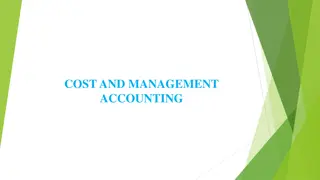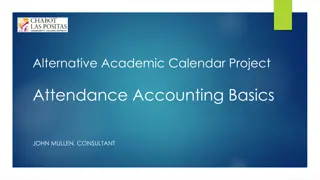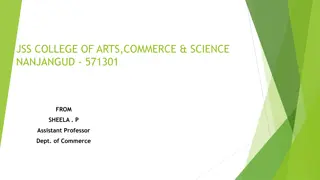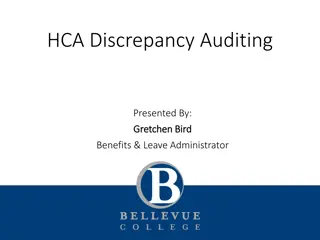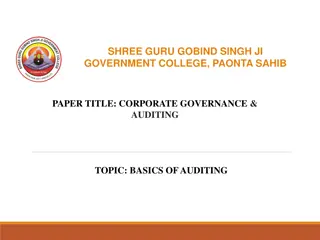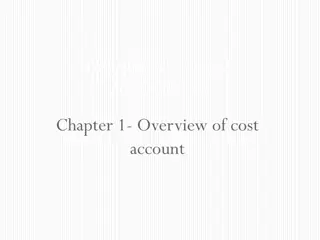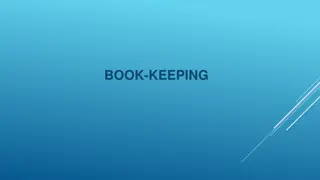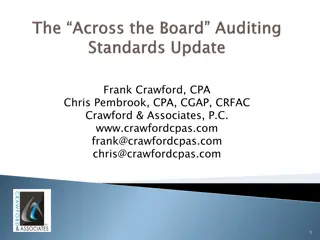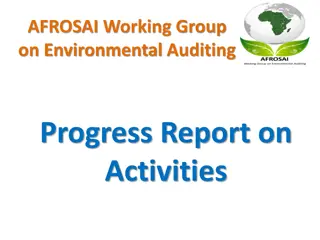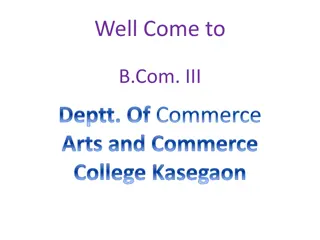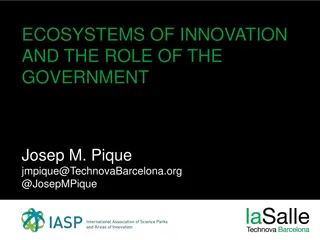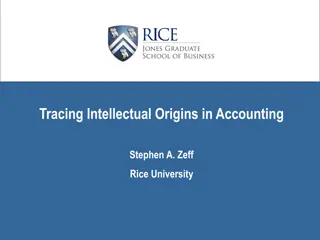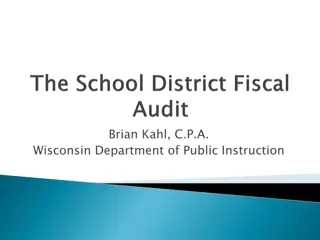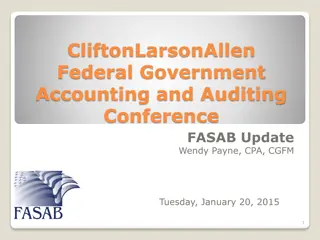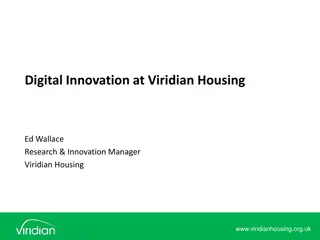Enhancing Accounting and Auditing Education through Innovation
Innovation in accounting and auditing education is crucial for developing students' analytical mindset, improving data analytics curricula, and addressing the shortcomings of traditional accounting education. The need for innovation is demonstrated by students' limited ability to apply analytics, faculty polarization, and employer dissatisfaction with new hires' analytic skills. However, impediments such as reliance on memorization, faculty resistance, and time constraints hinder effective change in educational practices.
Download Presentation

Please find below an Image/Link to download the presentation.
The content on the website is provided AS IS for your information and personal use only. It may not be sold, licensed, or shared on other websites without obtaining consent from the author. Download presentation by click this link. If you encounter any issues during the download, it is possible that the publisher has removed the file from their server.
E N D
Presentation Transcript
WCARS 2021 WCARS 2021 Education 4.0: Innovation via Customization Education 4.0: Innovation via Customization in Accounting and Auditing in Accounting and Auditing A. Faye Borthick, Professor, borthick@gsu.edu School of Accountancy October 18, 2021
What innovation in accounting and auditing education would be enormously beneficial? Innovation: Developing students capability for applying an analytical mindset
Whats typical in curricula for data analytics? Mostly customary educational practices in offering learning experiences Assume (hope for) student competence with basic software, e.g., Excel Give detailed instructions for using software Avoid letting students struggle with the analytic thinking Assign scores to completed projects, prompting unauthorized collaboration Have no time for subsequent projects Move students along, setting up inflated beliefs about competence
What does typical accounting education yield? Students clinging to detailed instructions, unable to exercise an analytic mindset on new problems Increased polarization of faculty between the technology-seeking and technology-averse Accounting courses offered with primarily coverage goals Analytics not infused throughout curricula except in token ways Little to no assessment of ability to apply an analytics mindset Accounting students disadvantaged in the job market compared to IS, finance and data science majors
What demonstrates the need for innovation in education? Even in advanced courses, students being unable to instantiate an analytic mindset defined as: Ask the right questions Extract, transform and load data (ETL process) Apply appropriate data analytics techniques Interpret and share the results with stakeholders Employers being disappointed with new hires data analytic performance Students selecting the accounting major imagined as certainty with numbers
What impedes change? Lifelong acculturation to memorization as the predominant learning strategy (students and faculty), making the knowledge brittle Reluctance to insist that students struggle with data analytics Faculty fears of bad student evaluations Difficulty of creating learning experiences that foreground an analytics mindset Time/effort for developing assessment questions Textbooks emphasizing memory of content over thinking University pressure for lower DFW rates
What forces encourage innovation? Declining enrollments in accounting programs Higher salaries for IS, finance and data science majors Increasing AACSB standards for data analytics in accounting Pleas from the accounting profession for data analytics expertise in new hires Increased hiring of non-accounting majors by the accounting profession
What changes might improve the situation? Part 1 Situate curricula in an analytics mindset from the outset (principles of accounting), teaching accounting/auditing through the technology Assess software competence at the beginning of courses; assign catchup work as needed Offer learning experiences that enable students to apply an analytics mindset to business problems Insist that students struggle with thinking analytically
What changes might improve the situation? Part 2 Evaluate student performance with questions that assess their thinking in context, e.g. If the following [formula/expression/procedure] is used to accomplish X in the analysis, the result will: a. Be correct b. Overstate the correct result c. Understate the correct result d. Mis-state the result depending on something else Note: Thinking in the business context is required to answer the question. Just memory of the trip through the analysis is inadequate.
What changes might improve the situation? Part 3 Teach accounting/auditing through the technology rather than instead of or in addition to, e.g. Begin the use of computational technologies in the first business courses and continue their use in all business courses Use the technology for all assignments, typically Excel at first Scale the data volumes in problems to the students level of mastery, but with enough data that analyses require technology use, i.e., hand calculations are infeasible





